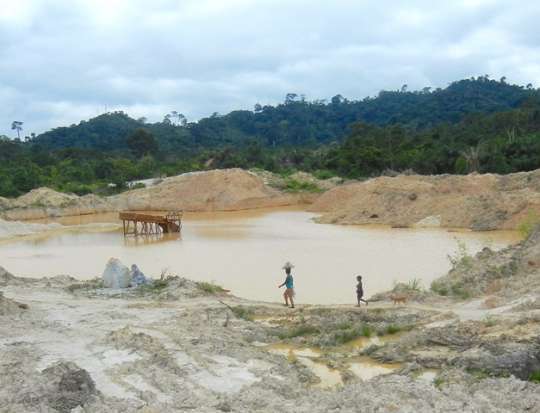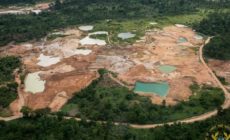Galamsey: $21b required to restore degraded mining lands
- Posted on
- Comment

A whopping $21 billion would be required to restore the degraded mining lands.
An additional $400 million to restore Ankobra River alone that had been so polluted by the galamsey operators
Professor Kwabena Frimpong-Boateng, the Minister of Environment, Science, Technology and Innovation announced this during a media engagement in Accra to interact and foster stronger relationship between the media and the Ministry of Environment.
According to him, all illegal mining activities were being weeded out of the system, with many of the foreigners caught engaging in them arrested and being prosecuted, while those of West African origins had been deported.
250 registered Ghanaians engaged in small-scale mining
He explained that there were more than 250 registered Ghanaians currently engaged in small-scale mining saying “So if you go somewhere and somebody is mining don’t assume it is galamsey.”
The Minister noted that the fight against galamsey, which started in 2017, was to help the country to “define illegality in the sector”, which was destroying water bodies, river beds and forest reserves saying illegal mining came with a huge cost to the nation.
Prof. Frimpong-Boateng explained that former galamsey operators degraded the lands without reclaiming it while others used dangerous chemicals such as cyanide and mercury without authorisation.
According to him, others also used bulldozers and excavators to destroy the communities.
The Minister revealed that through such illegal mining most of the water bodies like River Bia, Tano and Pra became highly polluted, but thanks to the fight against galamsey the situation has been brought under control.
Over 4,000 small scale miners trained in sustainable mining
He said over 4,000 small scale miners had been trained in sustainable mining and assisted many young people in acquiring alternative livelihood programmes being run by the Ministry of Local Government.
Prof. Frimpong-Boateng stated that presently the most difficult aspect of the situation was the issue of local farmers and landowners who continued to hide and engage in illegal mining in their farms.
According to him, most of the rivers were regaining their former status and urged the public to support government’s efforts at restoring the water bodies to ensure quality water supply in the years ahead.
He said the various agencies under the Ministry, including the Council for Scientific and Industry Research (CSIR), Atomic Energy Commission, and Environmental Protection Agency (EPA), were all working hard to promote socio-economic development.
He said the CSIR, through its 13 institutes, were helping to ensure food security by coming out with many varieties of crops and animal breeds, as well as technology to support growth.
He said the Atomic Energy Commission was also helping with nuclear agriculture and radiation protection, among other things, while the EPA was working to keep a safe environment.
-TheFinder










 (Selorm) |
(Selorm) |  (Nana Kwesi)
(Nana Kwesi)